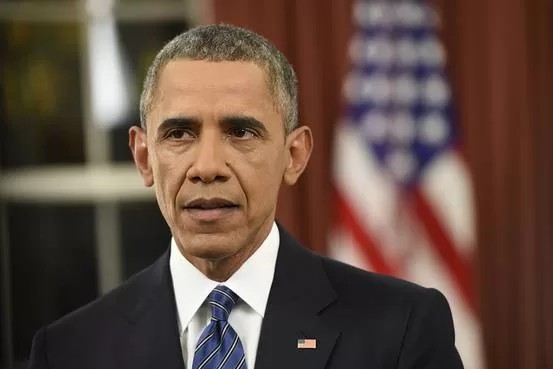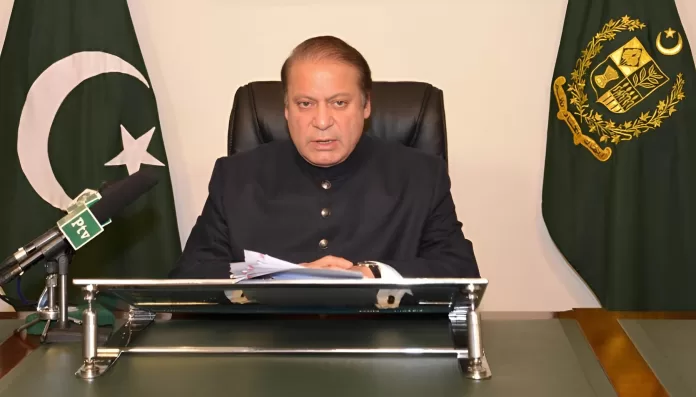In an all encompassing, first speech since the general elections, Prime Minister Nawaz Sharif admitted that the country’s institutions have failed on almost all fronts, including the war on terror. He thanked the people for expressing their confidence in him. But he said, “We should face reality that the country faces severe challenges”. This frank articulation is indeed a healthy sign. Real progress can only be made when the leadership is aware of and is willing to admit the existence of problems.
This was the official acknowledgment of an otherwise open secret. Prime Minister’s assessment is also a mirror reflection of the grim situation portrayed by the ‘Annual Survey of Failed States’ covering 2012. This survey has recently appeared in ‘Foreign Policy’ magazine. Basing its calculations on data derived from elements like demographic pressure, refugees, public services, economic decline, factionalised elites, security apparatus etc, it places Pakistan in the 13th position with a total score of 102.9. Bangladesh stands at 24th with a score of 96.1, Sri Lanka at 25th with a score of 95.7 and India at 79th with 77.5. Any figure above 80 puts the country in the ‘critical’ category.
While addressing the nation, the PM touched on issues ranging from power crisis and corruption to Pakistan’s relations with India, drone attacks and national security. He has rekindled the hope that his government, with the help of the people, will resolve all these issues. He said Pakistan is passing through a challenging phase and “we will have to take difficult and important decisions”. He said that soon after taking over the government he had invited all political forces to join hands to steer the country out of its current problems and put it back on the track of development, and “now going one step ahead, offer dialogue to those elements which unfortunately have taken the course of extremism”.
For over two months, Nawaz Sharif had put off the traditional inaugural address to the nation. The unofficial explanation was that he was taking a tour of the wonderland of the problems confronting the country and would come up with concrete action plan for handling all of them especially terrorism and energy crisis. His diagnosis was correct, but some of the offered solutions were hollow. Many analysts had opined that though the new government was aware of the existence of most of these problems, they had little idea of the breadth and depth of many of them. Unfortunately, this was true as confessed by the prime minister. He said that he only discovered the scale of the problems after assuming office in June. Existence of this information black hole came as a disappointment to all well wishers of the country; the prime minster in waiting for the last five years should have been better informed. There is a need to institute measures to ensure dissemination of information to the government in waiting so that it remains ready to step in the shoes and start functioning without fumbling. We need to look into the system of shadow ministers to overcome this difficulty.
The prime minister was clear-headed about the problem of terrorism. He pointed out that fear had pervaded everyone, from law-enforcement agencies to the courts and to witnesses. He called for dialogue with the militants. He made unconditional offer of coming to the table. However, he asserted that in case a reasonable way out was not possible, his government would not hesitate to use force. This is indeed the correct approach. Most of the countries have overcome the problem of terrorism through this two track approach. A fair chance should be given to those who wish to give up terrorism but find all exit door shut. Moreover, this would help in building national consensus if the option of hard power application becomes inevitable.
Though Mian Nawaz Sharif touched on every challenge the country is facing, it was the issue of energy about which he did a plain talk and told the nation that a sudden and immediate solution was simply not possible. This was indeed a realistic assessment of the situation. He was bold enough to state that addressing the curse of load shedding, would take five years as new projects will require several years before they start generation. “I am confident the power crisis will be overcome in five years,” he said. He thanked the Chinese government for its interest in resolving Pakistan’s power crisis.
In the realm of foreign policy, he spoke of making significant departures from the existing settings.

On India, the prime minister was far clearer and stronger, emphasising that he sought improved ties for the sake of the people of the region, despite the problems and perils that exist. However, PM needs to realize that not much of space is available to accommodate his wish list. India is not ready to cede space for such adjustments. He also spoke of revisiting Afghanistan policy. Here he has adequate leverage for bold initiative. He should launch a diplomatic campaign for evolving a regional approach for meeting the challenges of post 2014 Afghanistan. In the context of drone attacks, though he has conveyed his point of view to the American side, concessions given by the earlier governments may stand in his way. However, overall change in the drone policy as unveiled in President Obama’s “Crossroads” speech provides a ray of hope that such attacks could come to an end within one year.
PM’s assertion that he intends to take on the problems of Baluchistan and use development as a tool to help tackle the problems is quite encouraging. However, he needs to address the governance vacuum; otherwise all development effort would go down the drain. The outgoing government had pumped in phenomenal funds, but nothing changed on the ground. Likewise, he was concerned about frequent breakdown of law and order in Karachi. Karachi needs a wholesome treatment, starting from depoliticising the law enforcement agencies and controlling the gun running.
Nawaz Sharif was also candid about the state of economy. Pakistan’s foreign debt, he said, had increased from Rs. 3,000 billion to Rs. 14,000 billion in 14 years. The government had to opt for more loans to pay the heavy instalments. He pointed out that the losses from state corporations amounted to Rs. 2.5 trillion in the last five years. He said that PIA and Railways have been mismanaged. Hospitals, schools and other infrastructures could have been established and power crisis controlled, if money was not wasted on PIA and Railways. Nevertheless, he will have to find out remedies for these poor performing strategic entities short of privatization. There is need to appoint hard core professionals for running the PIA and do away with political appointees. Likewise, Railways could be revived through partial outsourcing of its services.
Through his speech, PM Sharif has laid down his leadership style. The new government is suffering from slow syndrome. It certainly does not have unlimited time at its disposal. It will have to ensure that signs of improvement begin to show for themselves. It must reach out to the underlying causes leading to present impasse and avoid an approach of window dressing. The real test starts now, even if he could deliver partially on what he has pledged, the country would set out in the right direction.




